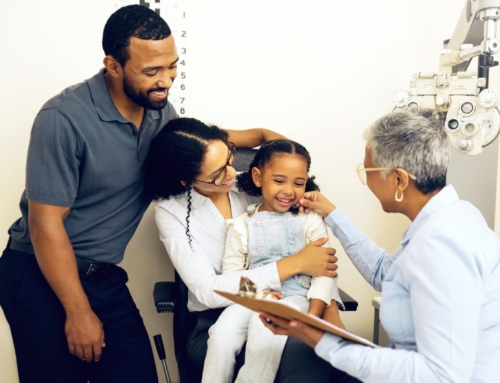“In a world where you can be anything, be kind.” -Author unknown
Kindness is a word that is generally accepted to mean the quality of being friendly, generous, empathic, sympathetic and considerate. I recently attended a Gathering of Kindness conference and came to understand that kindness can be by omission where you leave thoughts unsaid or it can be immersive where you experience kindness that fundamentally changes you. I’ve also learned through my own life experiences that kindness can be an act of advocacy.
When we advocate for what our patients need, when we empathize with them and develop mutual trust, it all flows from the simple act of kindness. When we treat our patients with kindness we influence their experience. “Kindness leaves an indelible mark on your soul” (Latib 2022). This is exactly what caring for others means. Touching the hearts of others when they are in the most need and seeking care.
A patient-centric culture thrives in such an environment. Relationships enveloped in kindness, built on empathy and trust promotes patient partnerships with their healthcare providers by impacting patients in profound ways. The partnership can either be with an individual or with the organization. An organization embodies individuals and their humanness. Trusting an organization builds loyalty to the brand and strengthens relationships. “Partnerships are not simply about mutual benefits; partnership does not equal collusion. True partnerships serve the customer’s best interests.” Lead for Loyalty (hbr.org).
Serving the customers or patient’s best interests through partnerships is at the core of Patient-Centered Care (PCC). Simply stated, patients are at the center of all we do because it is their health and wellbeing and their healthcare decisions to make, not ours. The days of a patriarchal medical model of healthcare are long gone. Our role as healthcare providers is one of educators, advisors, advocates, and empathic listeners. We do this through engaging and collaborating with those who have entrusted us in their care, our patients. If we do this with kindness, the impact is significant for patient well-being. What does it mean to be entrusted with one’s care? Trust is a firm belief in the reliability, truth, and ability of someone or something. Trust must be earned, not assumed, and is both an emotional and rational act. Listening creates trust and safety built over time by demonstrating characteristics such as honesty, empathy, competence, selflessness, and reliability. Patients can trust us as care providers as we develop close interpersonal relationships with them, but they also must trust the organization where they seek care. In this case, trusting an organization is usually based on its reputation, word of mouth, and experience. Trust can be broken by a single incident or eroded over time. Once it’s broken, it’s hard to win it back. Therefore, healthcare providers have an obligation to always win and maintain the trust of their patients and their families.
Empathy is essential in forming a deep connection where trust is established. Empathy and trust are in lockstep as foundational elements for effective communication and understanding. Organizations looking to create a patient-centric strategy and culture requires communicating empathically to employees about the need for change and what their role is in it. This is a critical step in any transformative change. Most leaders intuitively know this but don’t know how to do it. The Secret to Leading Organizational Change Is Empathy (hbr.org). A lack of empathic skill in leadership is certainly a roadblock to any sustained organizational change.
Afterall, empathy is our social radar and is part of our emotional intelligence. It is an ability to sense what others feel without them saying so. Rarely does someone tell you in words how they feel. Communication about their feelings is in the form of tone of voice, facial expressions, and other non-verbal cues.
The degree to which we can take on the pace, posture, and facial expression of another person when we occupy their emotional space is a demonstration of emotional attunement. When this happens, you are experiencing empathy and the ability to understand the emotional makeup of other people. Having the skill to be empathic in sensing how others feel is part of your Emotional Intelligence. Research has shown that every outstanding customer relationship has a universal set of qualities; they are the Six Pillars of experience excellence, of which empathy is one. Empathy is inextricably intertwined with the others. Empathy is the ability to achieve an understanding of the patient’s circumstances to drive deep rapport. Customer first insights six pillars – KPMG Global (home.kpmg)
Healthcare providers tend to be inherently empathic to have chosen a profession where kindness, compassion, and caring for others are prerequisites if one is to be fulfilled and happy in their work. Why then are organizations struggling to increase their patient experience and HCAHPS? Why is there a general lack of trust in healthcare? A few key questions administrators of healthcare organizations must ask themselves are: Is your organization empathic? Do you have the skill to communicate change empathically? Do you deliver on promises made to employees, patients, physicians, and the community? Do you have a reputation as a trustworthy organization? If the answer is no to any of these key questions, then attaining a patient-centric culture will be nearly impossible.
Yet, organizations today, more than ever before, are touting themselves as customer or patient-focused in ways that are deep and wide. However, if leaders and employees alike do not have the skill to be empathic, transformative change as we see in creating a patient-centric culture will be impossible to obtain. Empathy is the channel through which we can understand our employees and our patients. Being empathic puts the patient or consumer at the center and creates a community where people trust and take care of each other and that caring environment supports a patient-centric culture. It is important to note that empathy is one enabling human emotion skill that can be learned and leads to successful relationship building that at its core is based on trust. Taking a step further, organizational empathy is a commitment to develop a deeper understanding of their patient and other stakeholders, and changing needs to adjust their behavior to meet those needs. All of this starts with kindness.
Being kind, honest, trustworthy, humble, compassionate and empathetic all work together to create a patient obsessed culture that is in harmony with all of the stakeholders.
We need to be kind to ourselves, each other and our patients and only then can patient centricity be achieved.






